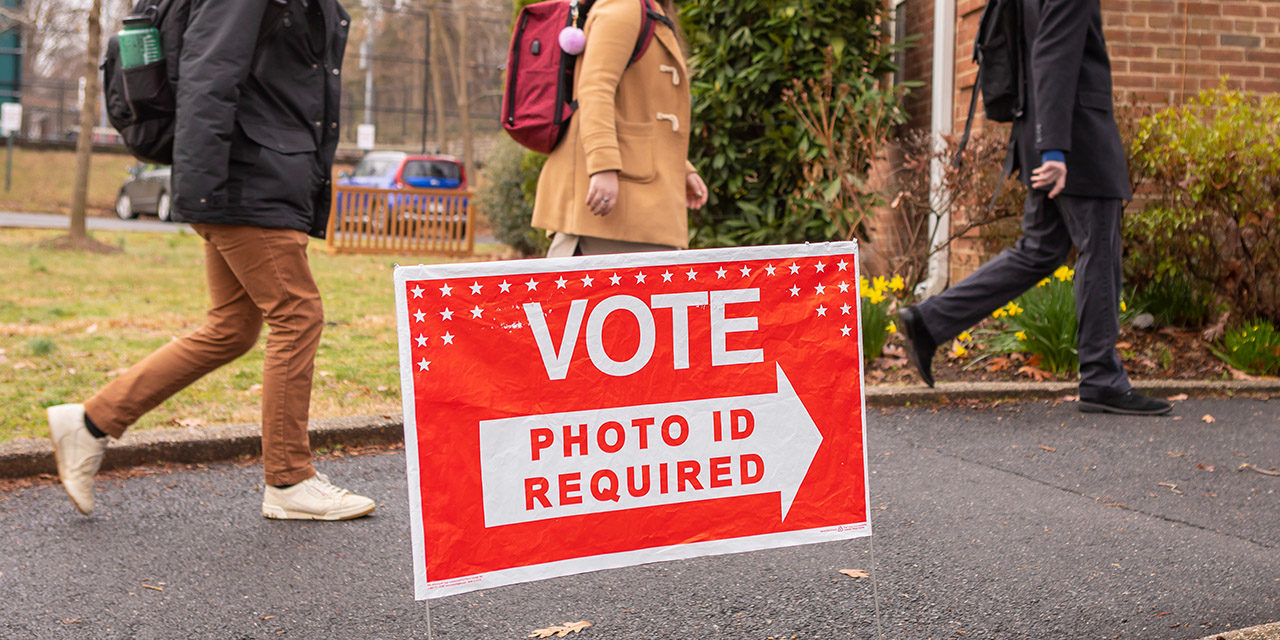A new Monmouth University Poll shows that Americans are clearly concerned with the integrity of elections. They want to expand early in-person voting, but even larger numbers want to see voter ID laws enforced.
In a survey of 810 adults from June 9 to 14, 80% of respondents supported requirements that voters show a photo ID in order to vote. Those results are bipartisan, with large majorities of Republicans, Democrats and Independents in agreement on the issue.
The poll covers other election issues besides voter ID, and it shows deep partisan divides on certain questions. However, the near unanimity concerning the need for voter ID laws prompts the question: Why is that?
“The poll contains some seemingly conflicting information on voter access,” said Patrick Murray, director of the independent Monmouth University Polling Institute. “The bottom line seems to be that most Democrats and Republicans want to take the potential for election results to be questioned off the table. The problem, though, is they aren’t likely to agree on how to get there.”
That appears to explain the popularity of voter ID laws among those polled. Nearly everyone has a government-issued ID, and in states that require them for voting, the government typically provides them free of charge. The usual argument against them is that they disenfranchise minority voters at higher levels than whites – a concern that does have historical justification in this country. But Monmouth’s poll indicates that such concerns may no longer predominate in minority communities. When broken down between whites and nonwhites, nonwhites support voter ID laws at an even higher rate (84%) than whites (77%).
Another study conducted by the National Bureau of Economic Research in 2019, and just recently revised, concludes, “We find that [voter ID] laws have no negative effect on registration or turnout, overall or for any group defined by race, gender, age, or party affiliation.”
What kind of things must Americans already show a picture ID for? How about purchasing alcohol and cigarettes, opening a bank account, or applying for food stamps, welfare, Medicaid or unemployment. You’ll need one for renting or buying a house, driving/buying/renting a car, getting on an airplane, and even getting married. States require them to obtain a hunting or fishing license, or to adopt a pet. The list is almost endless. Nobody questions the need for those requirements, either.
So why, given the obvious public support for voter ID laws, is the U.S. Congress considering a bill, H.R. 1, entitled “For the People Act of 2021,” which eliminates all state laws requiring voter ID and replaces them with just a signature requirement?
Hans A. von Spakovsky, an election law expert, wrote an op-ed in which he explained what the net effect of H.R. 1 would be, “When combined with the mandate that states implement same-day voter registration, it means I could walk into any polling place on Election Day, register under the name John Smith, sign a form claiming I really am John Smith, cast a ballot, and walk out. Not only would election officials have no way of preventing that or verifying that I am not really John Smith, I could repeat this in as many polling places as I can get to.”
H.R. 1 passed in the U.S. House on March 3 but failed in a procedural vote in the Senate on Tuesday, putting its future in doubt. The question of voter IDs, however, will likely not go away any time soon.
From its very beginning, Focus on the Family has emphasized the importance of social responsibility. In fact, it’s one of our six pillars, along with values like the preeminence of evangelism, the permanence of marriage and the sanctity of human life. So we’ve always encouraged Christians to participate in government through voting and other forms of engagement. State voter ID laws are part of ensuring that elections are secure and trustworthy.
Photo from Rob Crandall / Shutterstock.com






